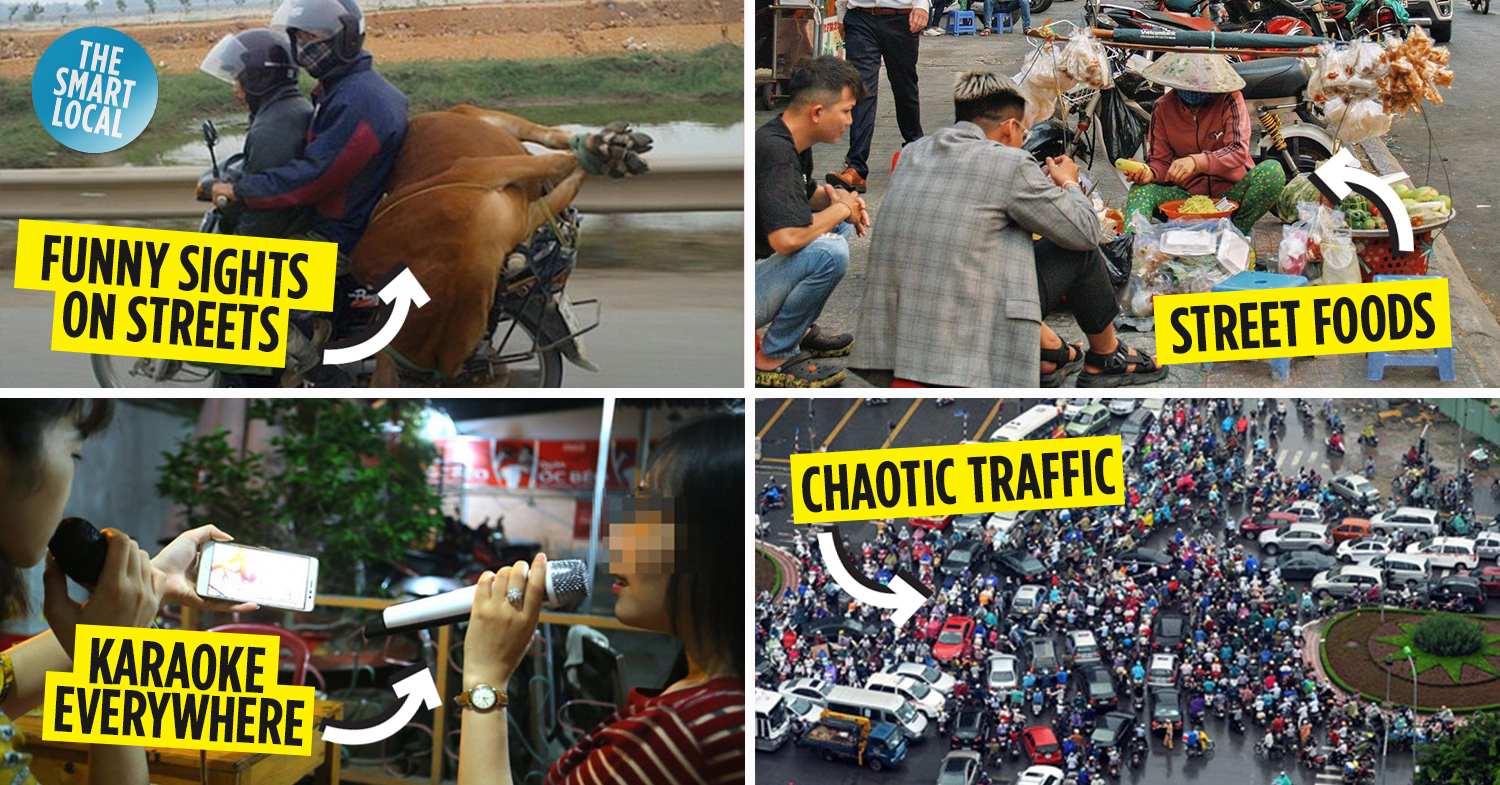Things that can cause culture shock in Vietnam
With borders reopening again, Vietnam is welcoming a large influx of foreign tourists. But while it’s always a delight to explore a new location, you’re also walking into a brand new environment, whose culture and nuances might cause shock to those unprepared.
So, to save you the trouble of adjusting, here are 12 things you should know before arriving in Vietnam to avoid culture shock.
Table of Contents
– On the road –
1. The sheer number of motorbikes and scooters
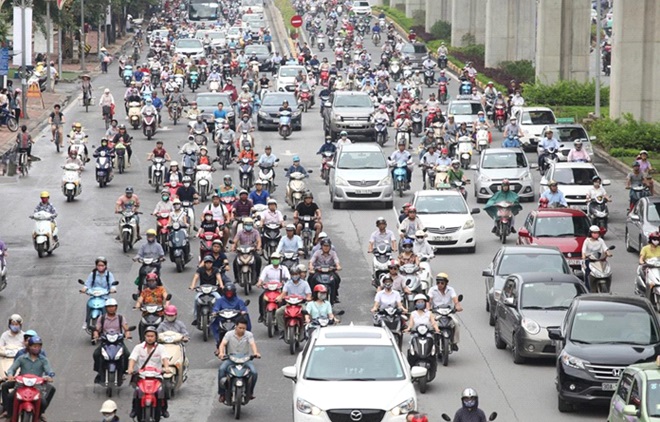
Image credit: Công An Nhân Dân
Over the years, I’ve had the pleasure of showing many foreign friends my wonderful country. But when I asked them about what amazed them here, one of the first things they mention, without fail, would be just how many motorcycles and scooters there are. A quick glance at a main street in any major city, and you can see dozens, if not hundreds, of such vehicles.
Now, I understand that if you’re more used to cars and public transportation, the sight can be peculiar. But from a local standpoint, it makes sense. Cars are very expensive here, and public transportation has a long way to go before they can accommodate our commuting needs.
Motorbikes and scooters, on the other hand, come in many models and price ranges, and are just generally more affordable. It makes sense for most of us to have one as a means of personal transport.
Which brings me to my next point.
2. The sheer number of people – and things – on those scooters
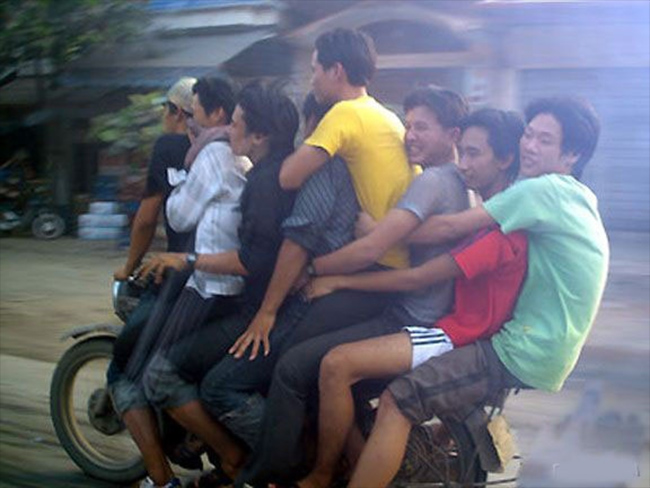
Image credit: Dân Việt
Legally speaking, a scooter is only allowed to carry two adults: one driver and one passenger. But the law cannot be enforced everywhere, and in places it can’t, some people tend to get… creative with what they carry on their bike.
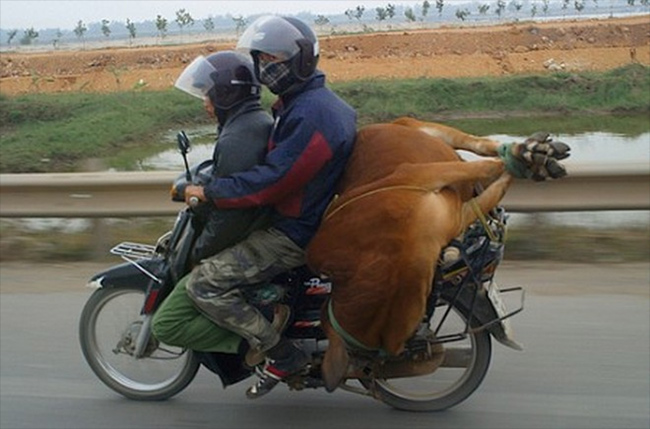
Image credit: Dân Việt
From a bike carrying 5-6 passengers, to an astonishing amount of furniture, or even livestock, there are many sights that’ll make a newcomer turn their heads in wonder.
Dubious safety standards aside, you have to give these drivers credit for their ingenuity. Besides, except for a few blatantly excessive cases that endanger everyone, such scenes are common enough that most people would look the other way with a chuckle. I’d advise you to do the same.
3. The chaotic traffic
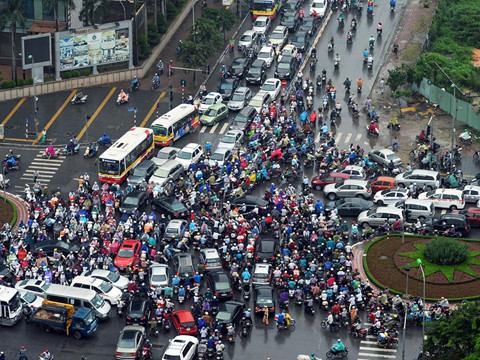
Image credit: Công An Nhân Dân
Naturally, with so many people and vehicles on the roads, it can get more than a little… hectic, particularly during rush hours. Vehicles driving in all directions with total disregard for traffic lights and signs are a daily occurrence. We often joke among ourselves that traffic laws in Vietnam are more of a guideline than a code. And if you are not familiar with the way things are, even simple tasks such as crossing the street can be a scary prospect.
If you’re not confident in your driving skills, it’s not a bad idea to rely on taxis or ride-hailing services to get around. Or if you’re walking, always look both ways before crossing the street – yes, even when you’re on a one-way street.
Check out more tips to survive traffic in Vietnam here.
– On the streets –
4. Street vendors are everywhere
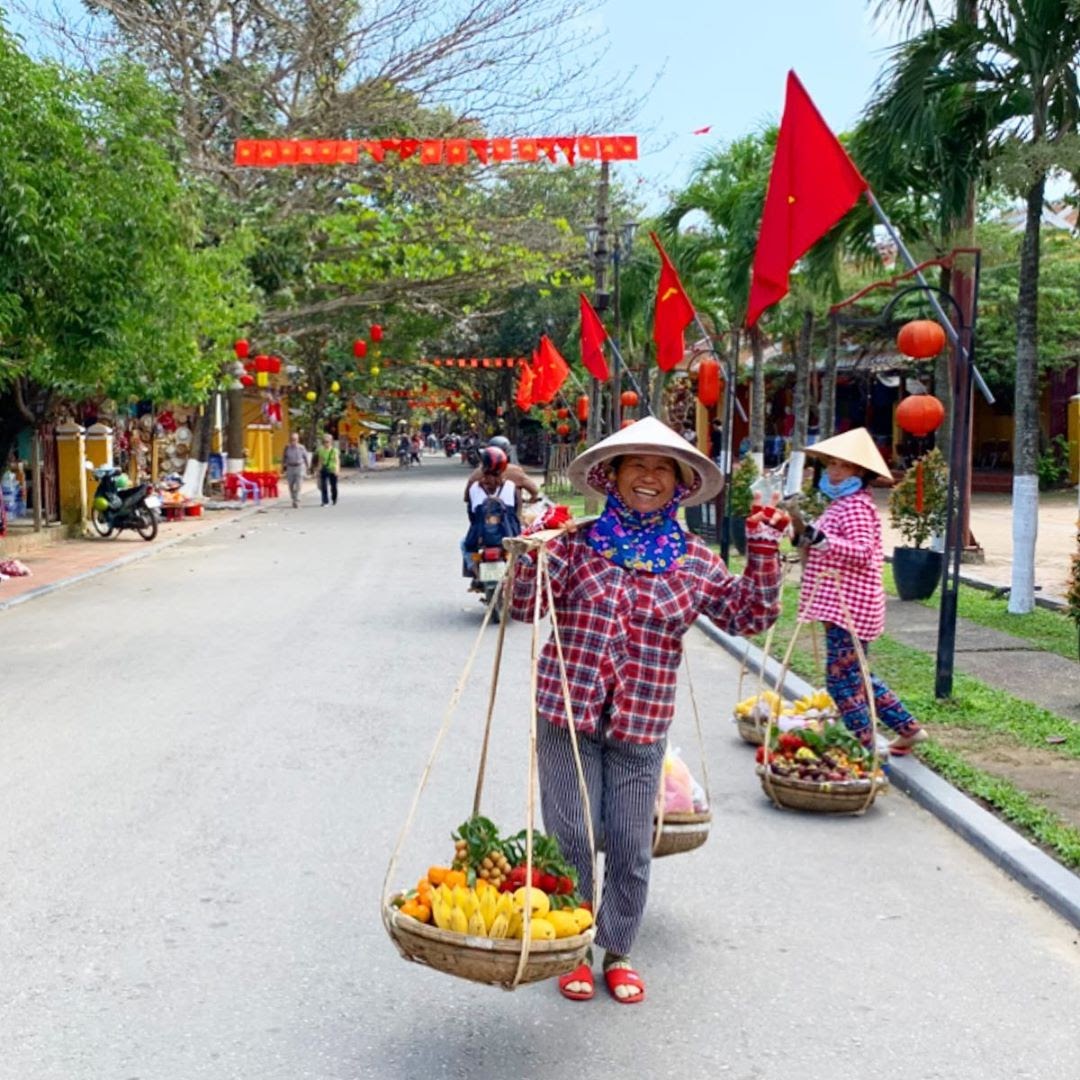
Image credit: @haru.t.04.30
One thing you’ll quickly notice if you spend some time walking around on the streets is that there are many street vendors, particularly in big cities or tourist spots. Often, they are seen on bicycles or on foot with baskets of goods strapped to a bamboo stick they carry on their shoulders. They provide all sorts of things from fruits and snacks to services such as shoe shining.
For the most part, these vendors are honest folks trying to make a living, so do feel free to buy from them. But do remember to ask for the price first, as there are also some bad apples who might try to scam you by charging excessive amounts for their goods.
Learn more about some common scams in Vietnam and how to avoid them here.
5. The street foods are delicious – but with a catch
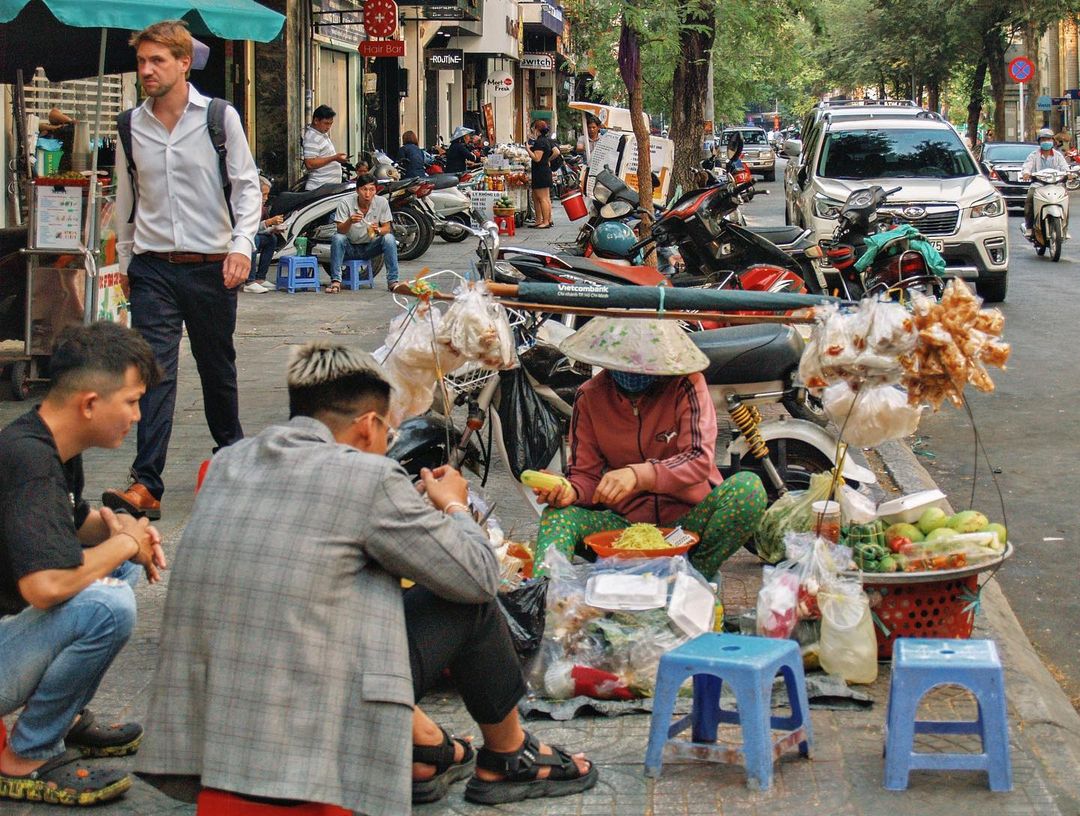
Eating on the streets is a common experience in Vietnam.
Image credit: @madeinsaigon__
I think it’s safe to say Vietnamese street food is well-loved worldwide. Dishes such as phở, bánh mì, or bún chả have made international headlines countless times. And once you’re in Vietnamese, you can find stalls selling them literally everywhere. – many of them no more than a few stools and tables set up right on the sidewalk or at a street corner.
That said, if you’re more used to well-maintained food courts or restaurants, you might raise an eyebrow at the hygiene standards of these shops
That’s just the way things are here. If you stop by a casual food store, expect slippery floors and dusty tables. Use tissues to clean your chopsticks and spoons if you’re careful.
6. You can sit down and enjoy tea and tobacco right on the sidewalk
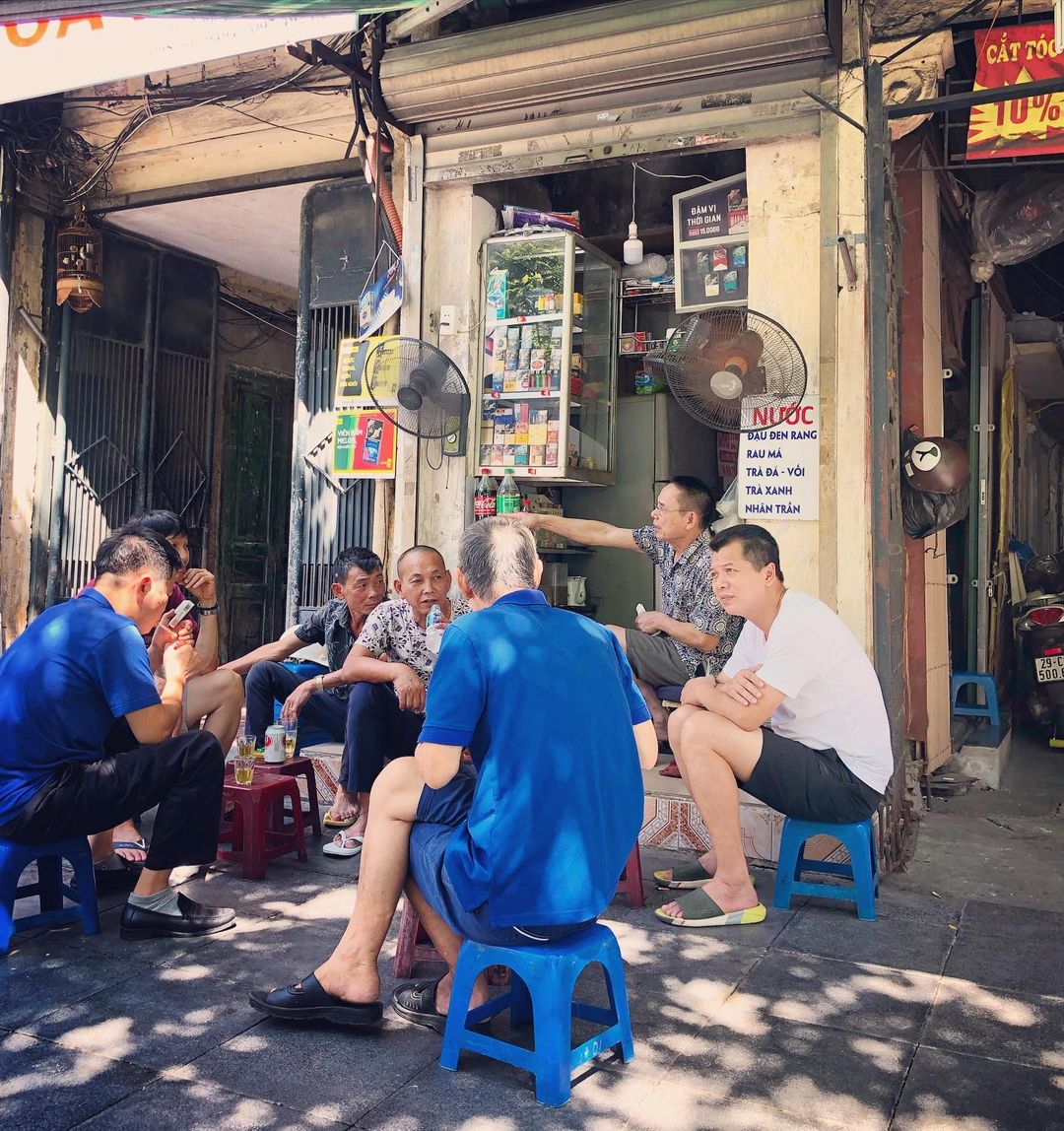
Tired? Just sit down at a makeshift drink stall and have a chat with strangers.
Image credit: @archituan
The sidewalks in Vietnam are home to many activities, though granted, sometimes these activities might take up most of the space – leaving little for actually walking. Aside from street food, you’ll see many makeshift drink stalls where people sit on low plastic stools to enjoy ice tea, a cigarette, and perhaps play a game of chess with fellow customers.

Điếu cày (long tobacco pipes) are a common sight at streetside drink stalls, but you might find yourself intrigued.
Image credit: @anh.hunq.195
You might also find yourself fascinated by điếu cày – a common item in these stalls. It’s a long wooden pipe with an opening at one end capable of containing a large amount of tobacco leaves, which the user will light and inhale in one go. Feel free to try if you’re inclined, but be warned that it has quite a kick.
7. Don’t expect clean streets
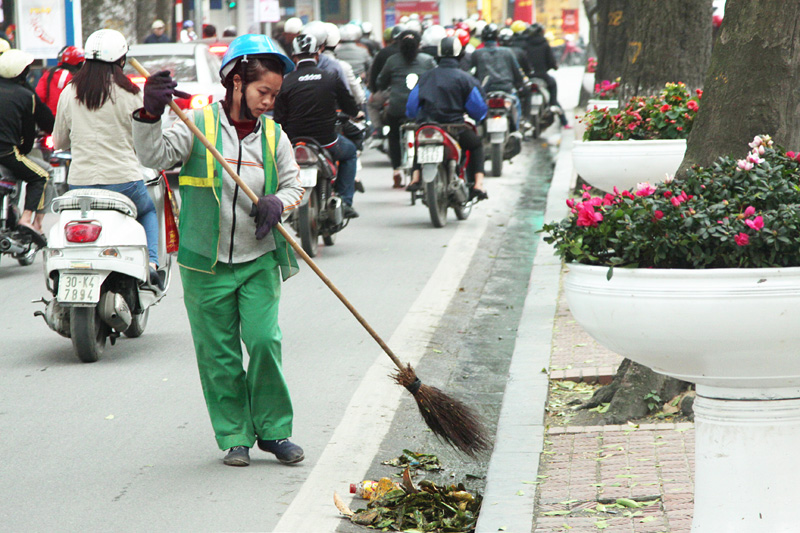
Littering is still an issue we need to work on.
Image credit: Hà Nội Mới
Now this goes into the not-so-pretty side of things: pollution and littering are pressing issues in Vietnam. A random person casually throwing a cigarette head or an empty Coke can on the street is, alas, a common sight. Perhaps some people are not even aware that littering is wrong, as it’s what they’ve always seen everyone do.
I’m not happy about it. I frown as much as anyone when I see it. But it is a reality here, so I’m bringing it up so you know what to expect.
On top of that, public trash cans are few and far between, so expect to hold on to your gum wrapper for a while if you’re walking outside.
– Other nuances –
8. Karaoke is the national sport

Image credit: VOV
One thing you’ll quickly see – or rather hear – is that we Vietnamese love singing karaoke. Outside of dedicated karaoke bars, we bring it everywhere – be it during friend gatherings at some casual restaurants or at home.
And yes, sometimes that extends to inconsiderate neighbors channeling their inner Taylor Swift (and a discounted one at that) deep into the thick of the night, much to the displeasure of everyone living around them. Trust me, it bothers us as much as it does you.
But such issues are recognized by authorities, who are taking measures to reduce karaoke noise. Granted, as the problem has been present for a long time, it’ll take time to improve. But it is improving, I promise.
9. Many folks are fascinated by white people

Image credit: VNExpress
A little anecdote: several years ago, I worked at an English teaching centre, where I befriended Tom, an Englishman. Twice a week, we’d meet up at the park near our workplace to play badminton. And on multiple occasions, other park-goers – complete strangers – would randomly approach us and ask for a picture with my friend.
It would seem many locals are fascinated by white people – perhaps because we don’t see them very often. If you go to areas such as Hanoi’s Hoan Kiem Lake, you can even spot groups of students approaching white tourists to try and practice their English.
Again, this is just a heads-up so you know what to expect. If such instances happen to you, and you don’t want to engage in conversation, simply decline their approach and walk away.
10. Tattoos are still a taboo here

Image credit: Vietnamnet
Another thing you want to be aware of is that tattoos are still sometimes seen as a taboo here. A cute little tattoo on your arm or shoulder won’t turn any heads, but many people – especially older folks who are not as open-minded – still associate large tattoos that cover an entire limb with… less honest parts of society.
Be particularly mindful if you come here to seek work – it’ll be something employers take into account when they evaluate you, especially if your work involves interacting with customers.
11. Expect to haggle every time you make a purchase
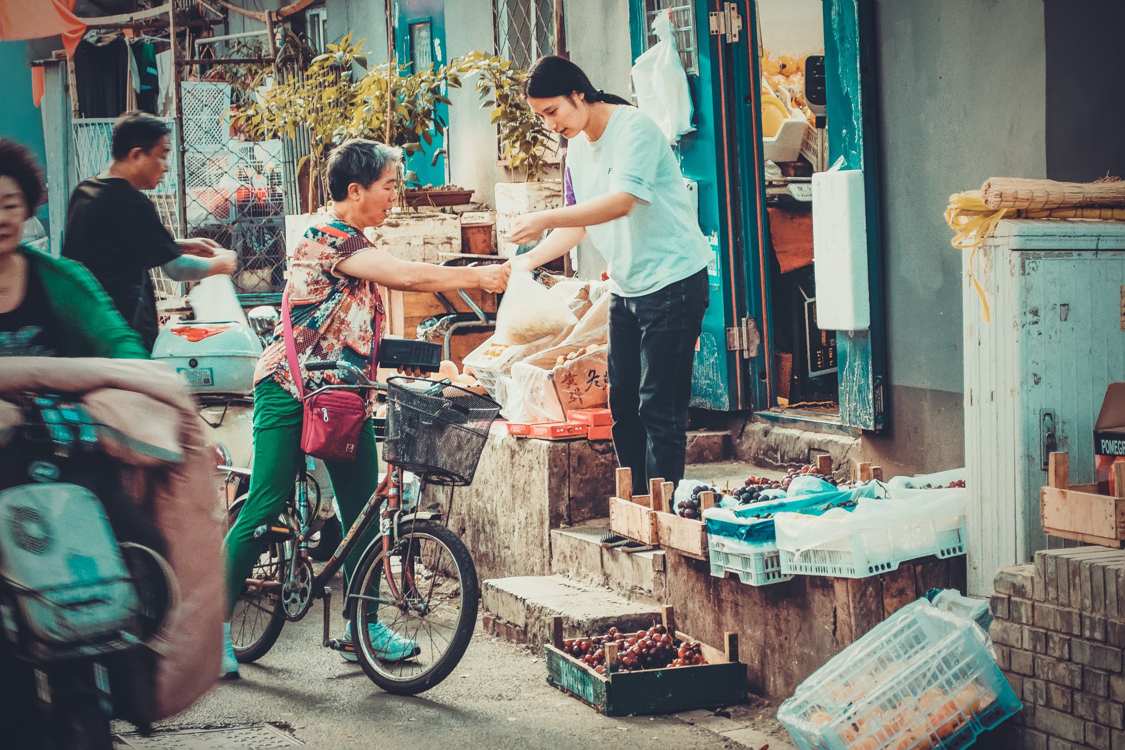
Image credit: zhang kaiyv
One rule to live by while you’re in Vietnam is, unless a product has a fixed price tag on it, you haggle for it. This applies to everything – from buying groceries at a common wet market to souvenirs at shops at tourist sites.
Bargaining is so common in Vietnam that shop owners expect you to haggle, so they often give a price higher than the product’s actual worth. So, make a counter offer that’s about 20-30% less than the price you’re originally given to avoid being overcharged.
12. Dog meat is indeed a thing
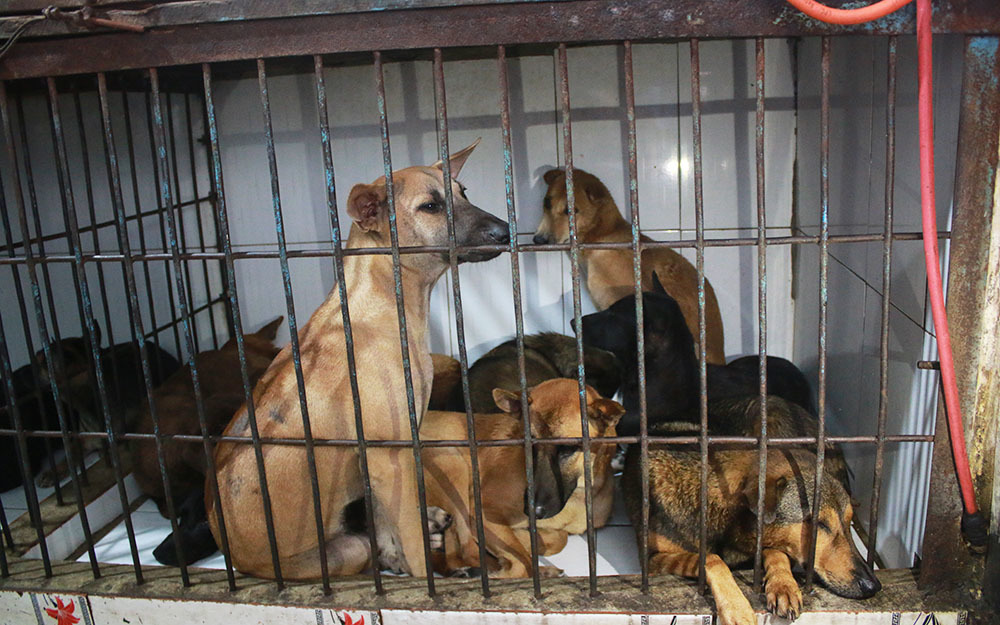
Image credit: Vietnamnet
You might have heard that dog meat is a thing in China and several other Asian countries, and yes, that includes Vietnam as well. If you happen to be in a common Vietnamese wet market, you might very well come across shops openly displaying butchered dogs for sale.
In recent years, however, the topic is becoming increasingly controversial. Many people advocate for a ban on dog meat. Others say it’s not illegal and they are not obliged to adhere to what they call foreign’s laws or moral standards.
Now,I’m not going to get into this discussion. I am here to deliver a simple, objective fact: that yes, such sights are present in Vietnam, and if they upset you, it is advised that you prepare yourself mentally, or avoid going to areas where you might see them in the first place.
What culture shocks have you experienced in Vietnam?
If you have taken the time to read this far, keep in mind that this list is by no means exhaustive. There are just too many cultural nuances to put into words. But I hope this article can provide a guideline to help you adjust easier if you’re new.
What other culture shocks have you experienced in Vietnam? Let us know in our Facebook page’s comment section.
For more things about Vietnam’s culture, check out:
- Vietnamese Tết traditions and customs
- Vietnamese wedding traditions
- 8 traditional Vietnamese festivals
- 10 superstitions in Vietnam
- 20 etiquette tips in Vietnam
Cover image adapted from Dân Việt, @madeinsaigon__, VOV, and Công An Nhân Dân
